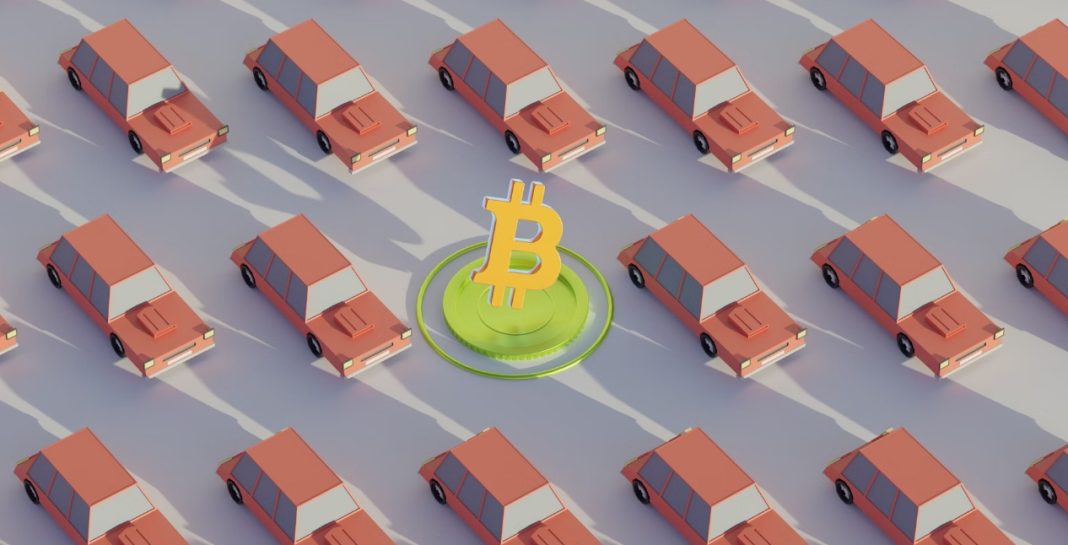Today, institutional holders of Bitcoin who want to earn from their assets through the commonly used DeFi protocol can only do so by sending them to BitGo for wrapped Bitcoin (wBTC).
Released today, DLC. Link’s new packaging method that minimizes trust in Bitcoin promises to be a viable alternative.
The “DLC” in the name stands for Discrete Log Contract, which is preconfigured to lock in the conditions under which Bitcoin (BTC) can be transferred, meaning that owners retain full ownership of their coins on the Bitcoin network.
A representation is then generated on the target chain in the form of dlcBTC, an ERC20 token that debuted on Arbitrum.
DLC co-founder and CEO Aki Balogh said. Link, the design ensures that bitcoins can only be returned to the original depositor’s address.
“It’s effectively an anti-theft protocol,” Balogh told Blockworks.

The process utilizes a set of “provers” – trusted node operators that run Bitcoin full nodes and nodes on the target chain – that function like an oracle that monitors blockchain events and verifies results.
At launch, seven certifiers will be involved, each holding a private key slice. five thresholds are required to move bitcoin onto the chain, Balogh said. He noted that even in the case of collusion, they would not be able to steal depositors’ bitcoins, and at worst, they would only be able to scrutinize their ability to unlock bitcoins.
Balogh explained, “We’re starting with seven well-known institutions that have their own brands and would lose some of their reputation if they colluded.”
The plan for the project is to gradually decentralize it, using DLC tokens starting in the third quarter.
This mechanism contrasts with other systems that bridge or bet on Bitcoin (such as Babylon and Nomic), which rely on additional sets of validators to protect stored Bitcoins.
Take DLC, for example. Link, users self-package and do not send their BTC to any external address.
Matt Bell, co-founder of Nomic, told Blockworks that the DLC approach is “something we ultimately want to implement.”
“I think it’s a smart approach, but it’s quite different from a Babylonian-based bet,” Bell told Blockworks.
The redemption process allows users to burn dcbtc tokens through an issuance contract. Proofers then reach a consensus to release the user’s locked bitcoins, rather than relying on a single custodian like BitGo to retrieve the original bitcoins.
Balogh said, “We’re thinking about it from a more macro perspective.” “You can never trust an intermediary and expect it to scale to trillions of dollars in value – no intermediary or custodian is safe enough to hold that many assets.”
The program mirrors BitGo’s business system, in which a group of companies receive licenses from the wBTC DAO. balogh said the DLC is allowing companies that are also btc merchants to become dcbtc merchants.
The first merchant is Amber Group, which, with the support of the Arbitrum Foundation, seeks a faster and cheaper way to deploy bitcoin on ethereum.
Data Link Control. link charges a mint and burn fee, but that fee compares favorably to BitGo’s wBTC, Balogh said.
A BitGo spokesperson told Blockworks that its fees vary based on several factors, including speed and conversion volume.
While the product competes with BitGo, dlcBTC requires merchants to use a hosting organization or wallet that supports Taproot, a rare combination that includes BitGo, Ledger Live and Cobo.
Balogh said, “(BitGo) is actually very open, maybe because they see that it’s actually a future solution that they don’t want to miss out on.”
Amber Group is in the process of building Taproot support into their proprietary wallet, and Balogh expressed pride in driving Taproot adoption.
Once in Arbitrum, dcbtc will be deployed in the Curve and Uniswap pools and is expected to make its way into the lending protocol.
Secondary trading via the DeFi protocol is the only way for retail users to access dlcBTC, since, like wBTC, dlcBTC can only be minted and exchanged by merchants.
The partnership with Swiss fund STS Digital will provide offsetting call options on dlcBTC, Balogh said.
THORchain offers a completely different way to earn local bitcoin revenue.
In the future, Balogh hopes that dlcBTC will also be available on other chains, either locally or using cross-chain messaging protocols such as CCIP or Wormhole.
He says: “We will decide which chains we should go to and where, depending on the needs of our customers, but Arbitrum seems to be a good option for beginners.”

